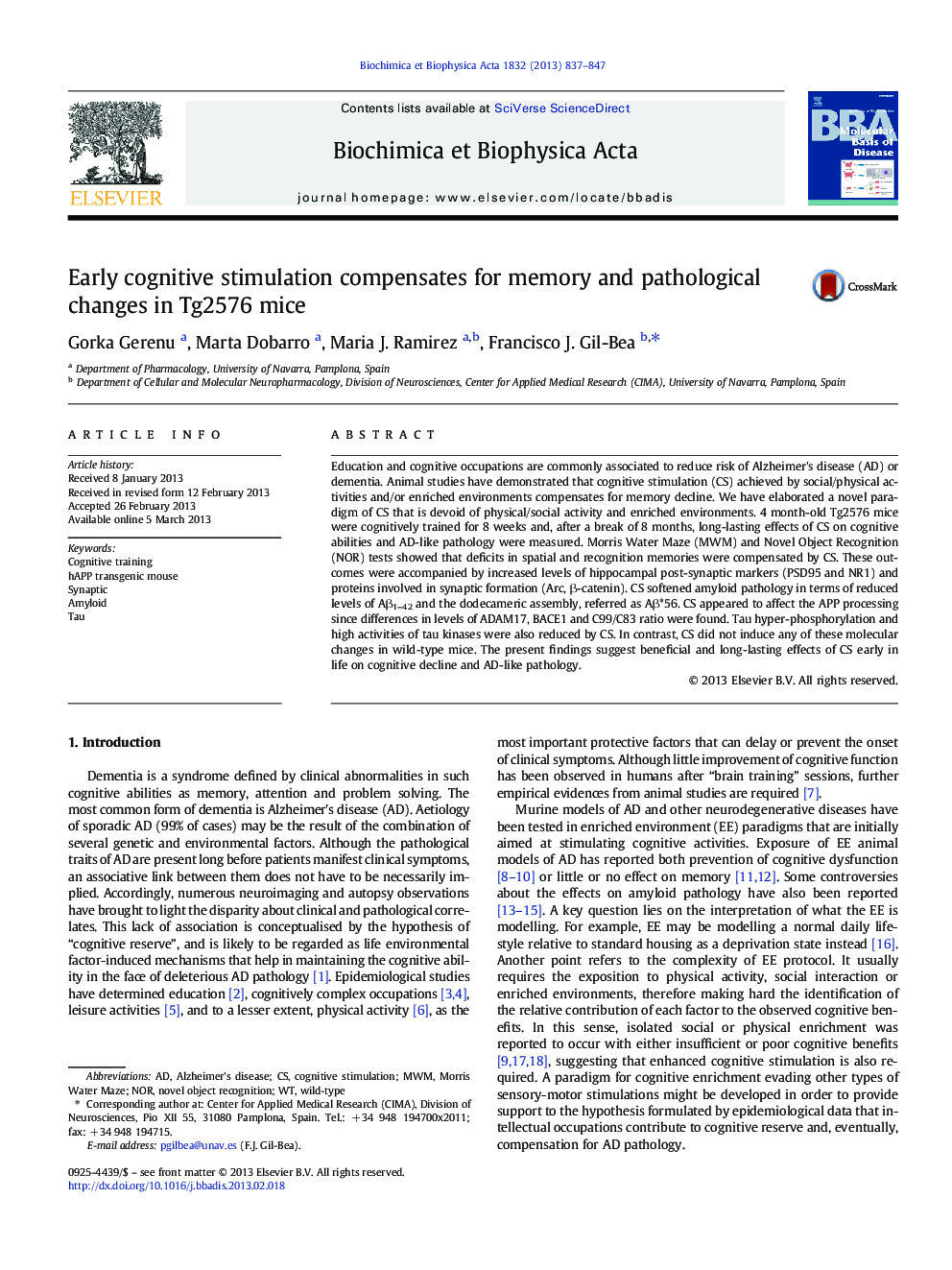| Article ID | Journal | Published Year | Pages | File Type |
|---|---|---|---|---|
| 1904854 | Biochimica et Biophysica Acta (BBA) - Molecular Basis of Disease | 2013 | 11 Pages |
•A novel paradigm to induce cognitive stimulation in mice has been tested.•Early-in-life cognitive stimulation delayed cognitive decline in Tg2565 mice.•Early-in-life cognitive stimulation compensated for synaptic pathology in Tg2576 mice.•Early-in-life cognitive stimulation reduced amyloid pathology in Tg2565 mice.•Early-in-life cognitive stimulation reduced tau hyperphosphorylation in Tg2576 mice.
Education and cognitive occupations are commonly associated to reduce risk of Alzheimer's disease (AD) or dementia. Animal studies have demonstrated that cognitive stimulation (CS) achieved by social/physical activities and/or enriched environments compensates for memory decline. We have elaborated a novel paradigm of CS that is devoid of physical/social activity and enriched environments. 4 month-old Tg2576 mice were cognitively trained for 8 weeks and, after a break of 8 months, long-lasting effects of CS on cognitive abilities and AD-like pathology were measured. Morris Water Maze (MWM) and Novel Object Recognition (NOR) tests showed that deficits in spatial and recognition memories were compensated by CS. These outcomes were accompanied by increased levels of hippocampal post-synaptic markers (PSD95 and NR1) and proteins involved in synaptic formation (Arc, β-catenin). CS softened amyloid pathology in terms of reduced levels of Aβ1–42 and the dodecameric assembly, referred as Aβ*56. CS appeared to affect the APP processing since differences in levels of ADAM17, BACE1 and C99/C83 ratio were found. Tau hyper-phosphorylation and high activities of tau kinases were also reduced by CS. In contrast, CS did not induce any of these molecular changes in wild-type mice. The present findings suggest beneficial and long-lasting effects of CS early in life on cognitive decline and AD-like pathology.
